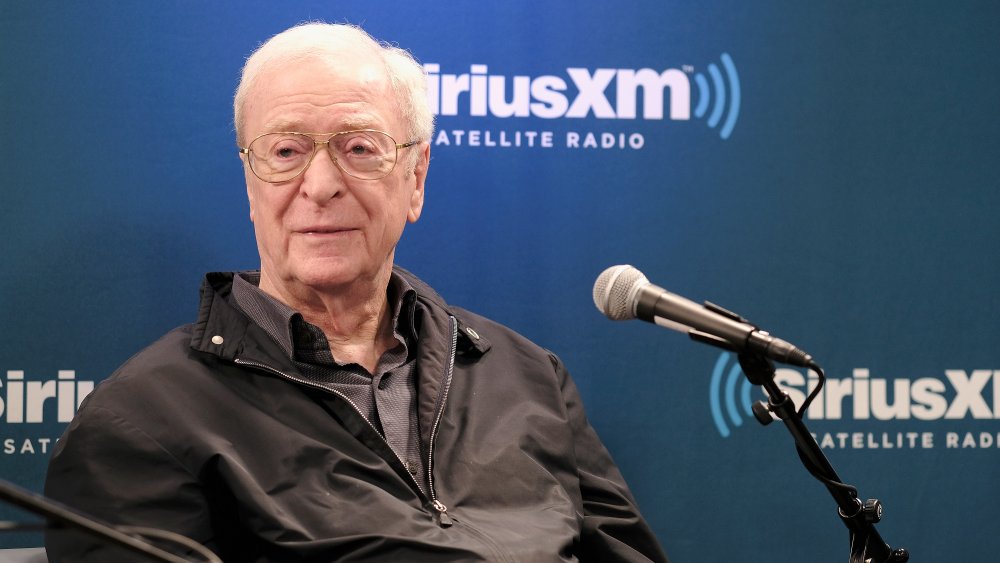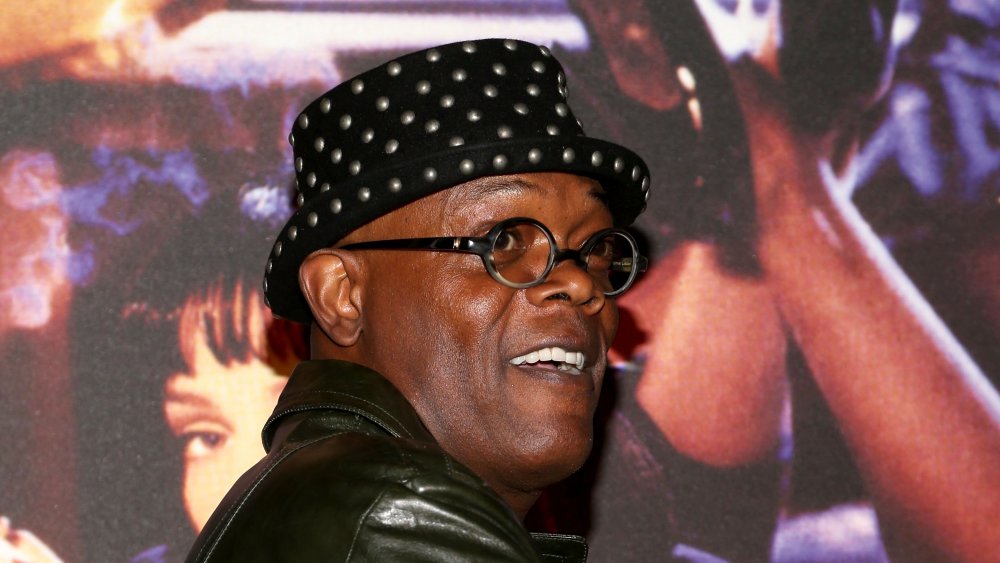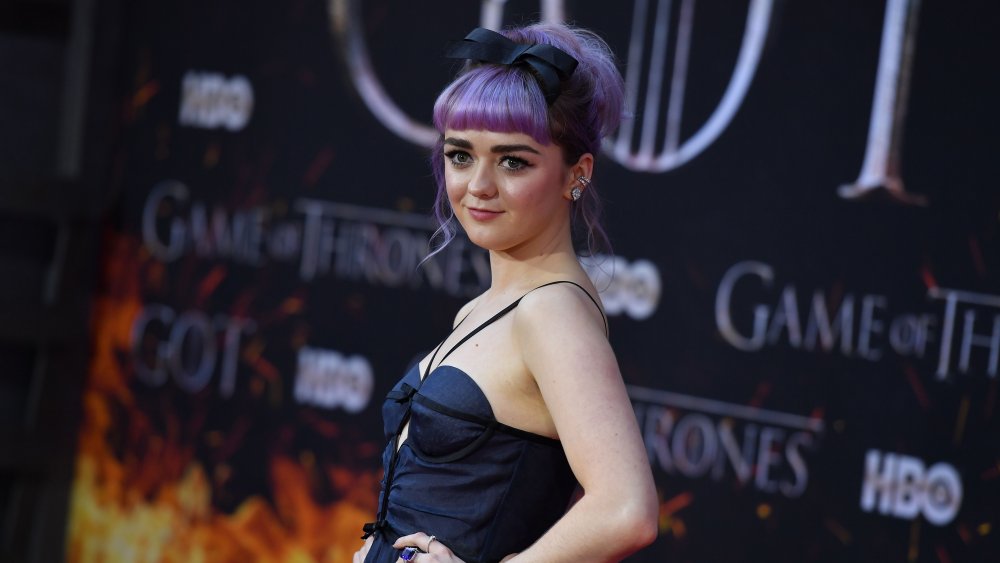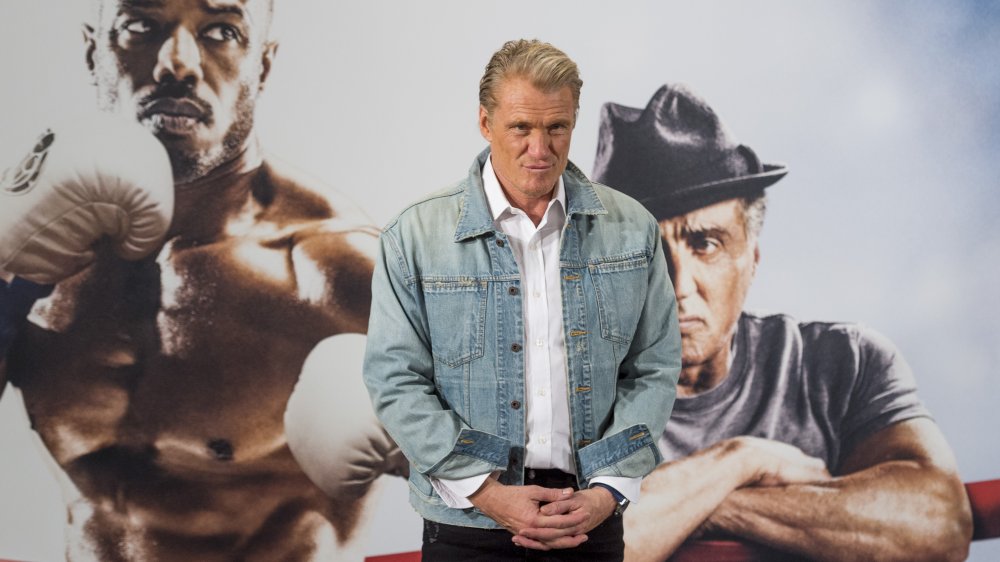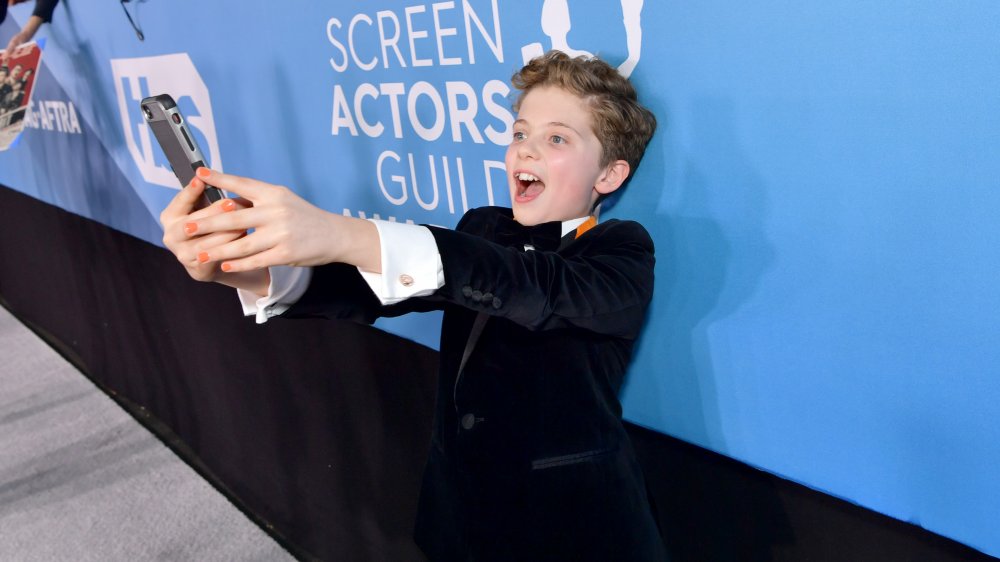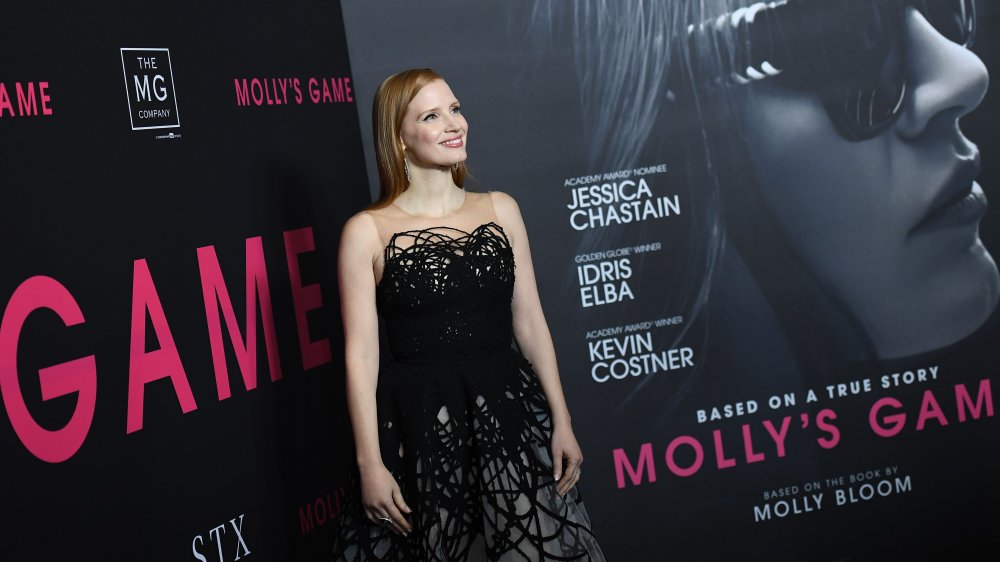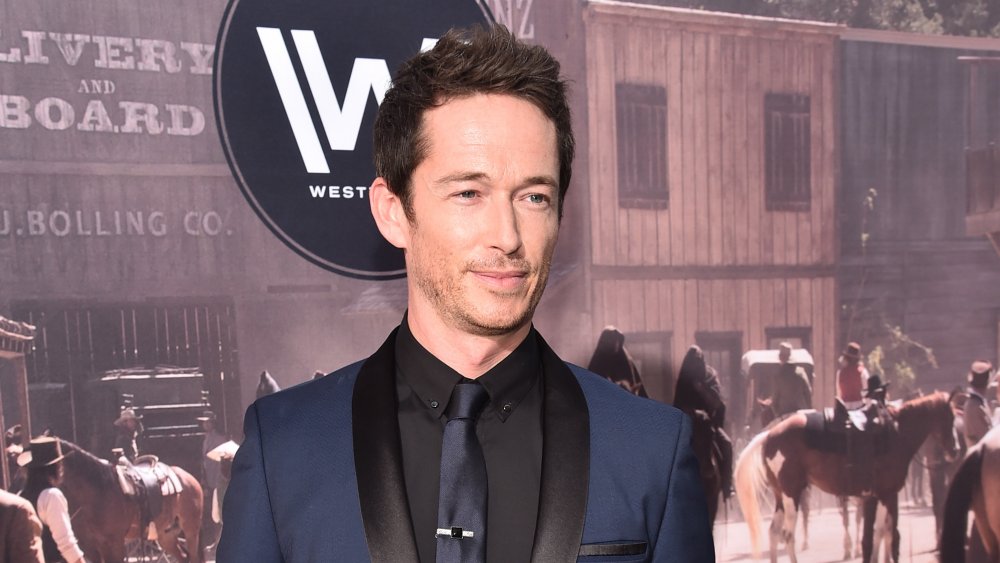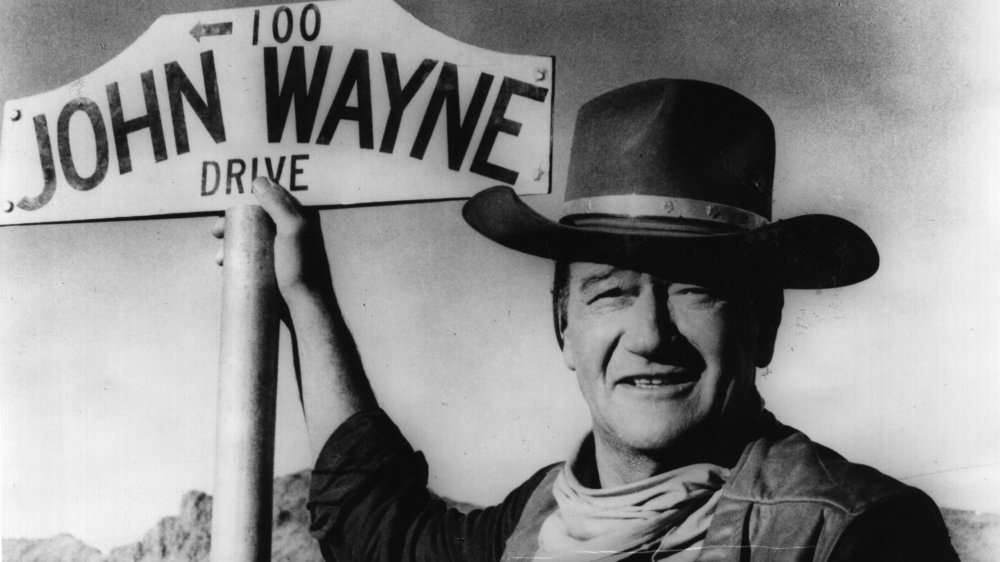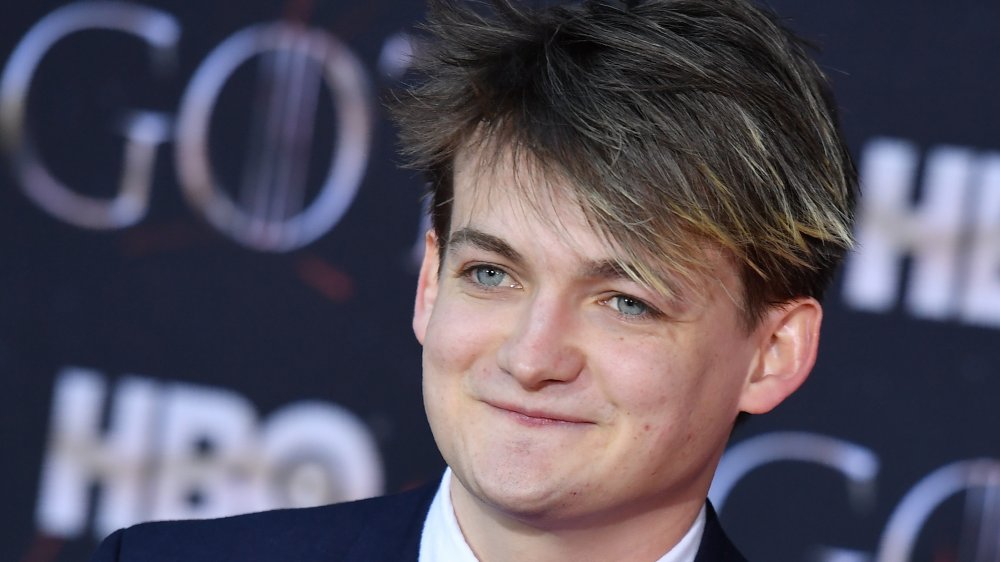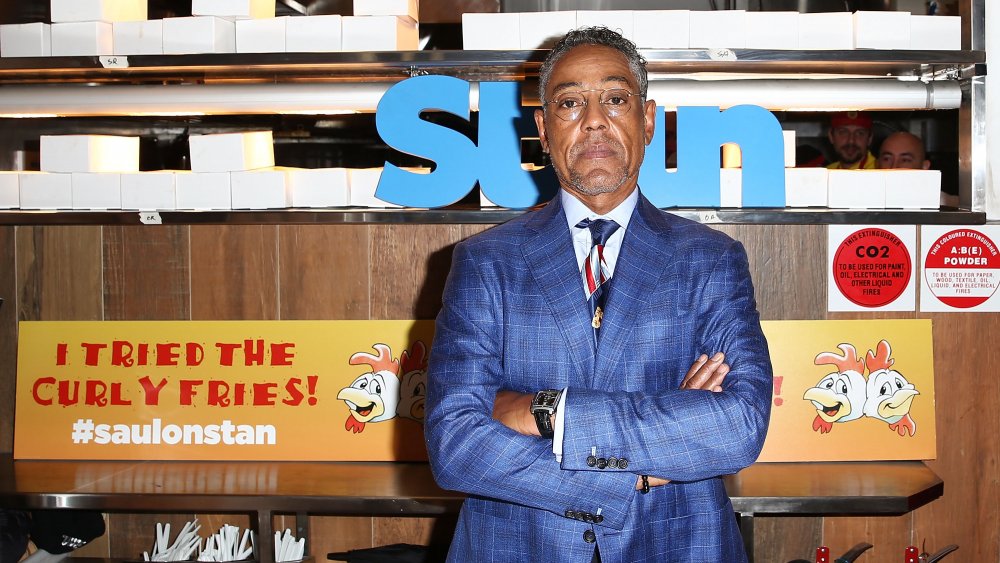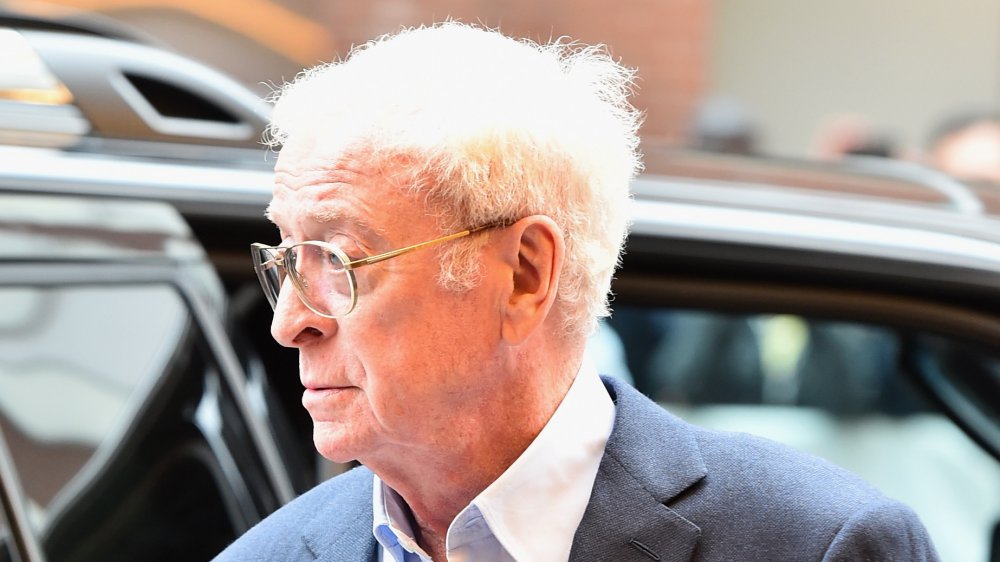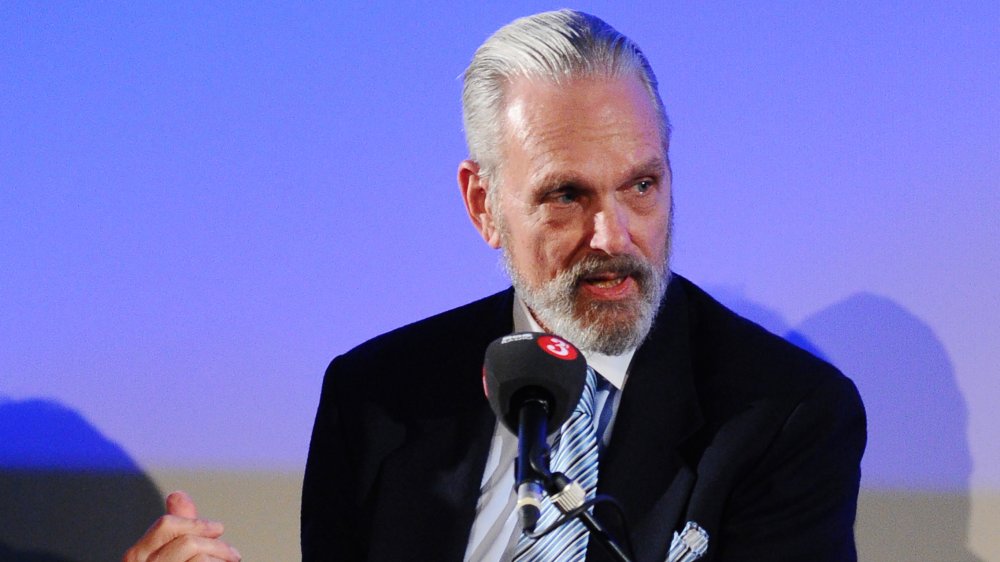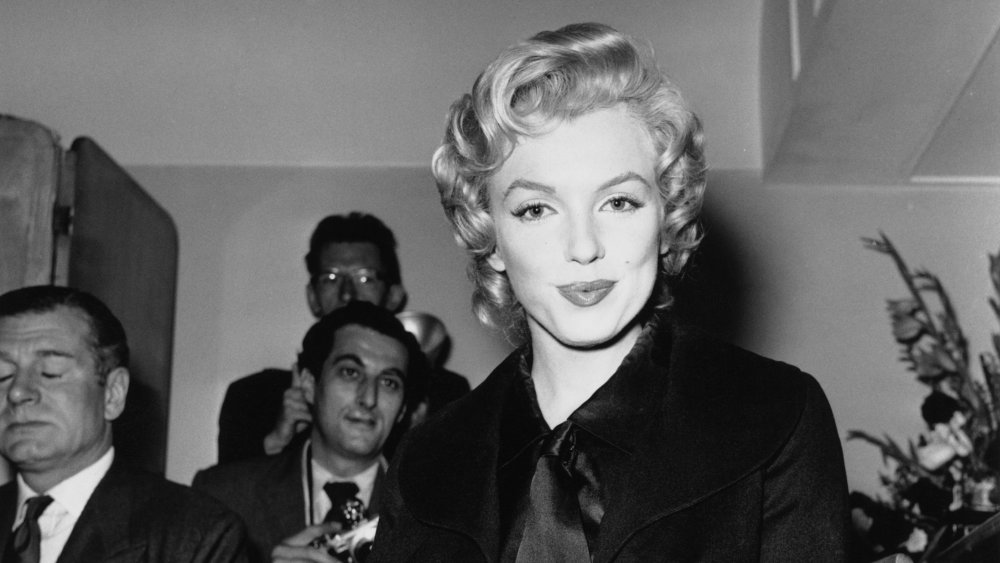Actors Reveal Their Favorite Scenes Ever
Scan through enough interviews with actors and it becomes clear they don't like to play favorites. After all, they've often worked on a vast number of films — it's hard to put any one of them on a pedestal when so many offered them wonderful opportunities and relationships. But everyone has opinions about what they do for a living and sometimes actors open up and reveal favorite films, characters, and scenes.
An actor who has worked for decades is often someone with dozens, even hundreds of roles to their name. Consider Kate Winslet: She's inhabited repentant Nazis, murderous teenagers, and revenge-minded seamstresses. Winslet isn't even 50 — compared to someone like Maggie Smith, she's barely worked at all. It's incredibly special, then, to see an actor discuss what they consider to be particular triumphs in their career. We're here to examine some of those bright spots, as named by the actors themselves. From the blood-spattered showdowns to the comic relief, these are actors' favorite scenes.
Samuel L. Jackson's loves Pulp Fiction's ending
Samuel L. Jackson's movies have made over $13 billion, making him the highest grossing film actor of all time. His particular favorite scene comes from 1994's Pulp Fiction, when Jackson's criminal character, Jules Winnfield, tries for an unlikely redemption while trapped in a robbery. "They said that they didn't know how the movie was supposed to end until I did that scene," Jackson told Esquire, "but they had no idea that that's what all that s**t meant until I did it." In another interview, he also credits Quentin Tarantino's script, which impressed him so much he read it twice in a row.
But while that's Jackson's favorite scene, Winnfield is only his second favorite role. First place? Mitch Henessey, from 1996's The Long Kiss Goodnight, a Shane Black movie about a working mother who hires a private detective after being pursued by an assassin. Jackson loved playing such "a fun-loving, kind of profane guy," a delight made evident by his wonderful performance. He calls the film "this really great cult classic" that was "way ahead of its time. Geena Davis — awesome Charly Baltimore character. The studio didn't know how to market that film because they didn't know that women like seeing themselves as bad***es."
Maisie Williams thinks her best work was in Ned Stark's last scene
As the Game of Thrones cast made their way through their final press tour, Vulture asked them to name their proudest scenes. Most happily dodged the question, but Maisie Williams cited the moment her character, Arya Stark, had to watch her father, Ned Stark's, execution. "Because on that day, when she's on the steps and she's looking around to everyone screaming 'kill him!,' there was no one there. It was an empty courtyard at seven in the morning and I was alone."
Williams was then a child actress, having joined Thrones at age 12, but that actually seems to have helped. "Watching it back now, I would really struggle to imagine fake things like that ... I had a very vivid imagination, I guess. I was able to convince myself that really bad things were about to happen." Since Thrones' ending, Williams has starred in other projects, including an arc on the popular British time travel series Doctor Who and in the upcoming superhero horror movie The New Mutants.
Dolph Lundgren fought to redeem his defining character
Rocky IV defined Dolph Lundgren: "It was my big break, but it also pigeonholed me." Already an imposing figure, Lundgren's portrayal of unstoppable Russian boxer Ivan Drago was almost too effective. He might actually be a Swede with a master's in chemical engineering who once attended MIT on a Fullbright Scholarship, but the 1985 film lead only to similarly muscular roles.
Understandably, he was reluctant to return to Drago when Rocky star Sylvester Stallone proposed it. "He said, 'Hey, wanna play this guy again? And I was like, Oh, s**t. Drago." But reading Creed II's screenplay let Lundgren envision an older, worn-out character. The final film's three-dimensional Drago carries Creed II's emotional weight, proving there was more to the machine-like Russian, much like the actor portraying him. Lundgren particularly fought for one scene: The movie's first encounter between Drago and Stallone's Rocky. Drago shows the cracks in his monstrous persona, recounting the emotional toll he'd taken after losing to Rocky in the earlier film's climax. "Some things were taken out that I thought were wonderful, and I fought for putting them back in .. I said 'I'm not going to shoot it any other way.' People have to understand where I'm coming from ... I'm very pleased it's in the picture."
Roman Griffin Davis loved "kicking Hitler" in Jojo Rabbit
Quirky Nazi satire Jojo Rabbit is full of memorable scenes. Roman Griffin Davis anchors the film as the titular Jojo, a young Nazi who's more naïve than cruel, nicknamed Jojo Rabbit by fellow members of the Hitler Youth after he's unable to kill a bunny. It is 13-year-old Davis' first movie, and if critics' love of his performance is any indication, it won't be his last.
Davis got to debut alongside top-quality co-stars, including Scarlett Johansson, who plays Jojo's mother, a resistance member, and Sam Rockwell, having a blast as a washed-up and likely closeted Nazi officer. Most notably, Davis appears alongside writer/director Taika Waititi, who plays Hitler as idealized by the lonely young boy. To Jojo, the tyrant is an imaginary best friend — until Jojo comes to understand the horror of the Nazi cause. That leads to Davis' favorite scene: Getting to kick Hitler "in the balls" and curse out the infamous dictator. The scene apparently required lots of takes and improvisation, giving Davis the chance to repeatedly say "the F-word loads of times." He is, after all, 13.
Jessica Chastain says her best scene ever was in Molly's Game
Jessica Chastain has been nominated twice for an Oscar, for roles in The Help and Zero Dark Thirty. Her favorite scene doesn't come from either of those, however, but from Molly's Game. Inspired by a true story, the 2018 drama follows an ex-Olympic-class skier who runs an illegal poker game servicing the rich, famous, and dangerous. Referring to co-star Kevin Costner, Chastain noted, "the scene that Kevin and I have outside, I said to Aaron, 'This is the best scene I've ever had the chance to do on film."
The film notably marked the directorial debut of Aaron Sorkin, who also wrote the Oscar-nominated screenplay. Sorkin is the screenwriter behind many beloved films, including Steve Jobs, Moneyball, and The Social Network, the latter two of which were also Oscar-nominated, with The Social Network winning Best Adapted Screenplay. He also created and produced the television shows The Newsroom and The West Wing, from which he departed after four seasons. No wonder Chastain loved working with him — the man knows his way around a killer line of dialogue.
Westworld's Simon Quarterman found his nude scene to be "the most liberating thing"
Westworld begins in a futuristic theme park where robots re-stage the wild west as a playground for the rich and thrill-seeking. Inevitably, the robots become conscious and revolt. Having murdered humans, escaped the park (only to discover others, based on different historical fantasies), and explored their own synthetic selves, the robotic "hosts" of Westworld don't seem likely to go back to docile servitude any time soon.
Simon Quarterman plays Lee Sizemore, who runs "narrative" at the park, meaning he scripts the robots' stories. During season two, a female robot often exploited in his storylines turns the tables, making him strip naked before her. The scene features full frontal nudity by Quarterman, which he found "empowering." Once "you see yourself naked, so much falls away from you. It really didn't bother me, and I thought it might, you know? In fact, it left me feeling so happy that I had done it." He also found "fascinating" many people's surprised and confused responses. "It's like it's too much to take, for him to just stand there naked ... We're stripping down this masculinity. It needs to be broken down in our society." He also felt it was a turning point for his character, "softening" him.
John Wayne's favorite scene won him an Oscar
Based on a 1968 Charles Portis novel, 1969's True Grit won John Wayne his Oscar. As the iconic star told Roger Ebert, "It's sure as hell my first decent role in 20 years, and my first chance to play a character role instead of John Wayne. Ordinarily they just stand me there and run everybody up against me." Wayne's success was, in this sense, a burden: Though he played many different characters over the course of his career, "nobody remembers how different the fellows were," melded, as they became, into one indistinguishable mass of John Wayne Hero.
As Wayne suggested to Ebert, "Thousands of good actors can carry a scene, but a star has to carry the scene and still, without intruding, allow some of his character into it. What do you think?" Ebert recalled a scene from True Grit, when Wayne's character Cogburn and protagonist Mattie Ross wait to ambush the villains. Cogburn opens up and discusses the quietly lonesome life he's lead. As recounted by Ebert, after a moment of contemplation, Wayne mused, "I guess that scene in True Grit is about the best scene I ever did."
Game of Thrones star Jack Gleeson loved being able to take it easy
Jack Gleeson played the widely hated (in a good way) Joffrey Baratheon, boy king of Game of Thrones. Joffrey begins the series as a petulant, entitled prince, and ends it as an outright tyrant with buckets of blood on his hands. One might assume Gleeson's favorite scene to contain one of Joffrey's particularly wicked acts — but no. Gleeson's favorite scene is the one in which he, as a corpse, lies beside his parents, who are twin siblings, as they have sex. Was the drama of the moment what Gleeson found compelling? Not exactly. Gleeson loves the scene because all he had to do for it was lie still with ceremonial rocks on his eyes. "I don't know if I did my best work, because I would literally just fall asleep in the middle of a take ... That was the one I enjoyed the most. It was also the one I gave my worst performance."
Breaking Bad's Giancarlo Esposito really loved threatening infanticide
Giancarlo Esposito's far-ranging career includes roles in The Mandalorian, Godfather of Harlem, and Dear White People, among other productions. Many know him, however, for his iconic portrayal of Gus Fring on Breaking Bad. Fring is a mysterious drug kingpin who hides in plain sight at as a respected community businessman. During a crucial fourth season scene, he threatens another character, intoning, "I will kill your wife, I will kill your son, I will kill your infant daughter." Esposito has cited the scene as a personal favorite, giving credit to everyone and everything from his co-stars to "the universe." That last one is evidenced by a fluke of the weather. While filming the scene, clouds briefly blocked out the sun, casting a shadow across the ground at a perfect, ominous moment. Both Esposito and the Breaking Bad writing staff clearly loved Fring: He reprises the role in the prequel series, Better Call Saul.
Michael Caine calls Youth his greatest performance
Michael Caine's first major role was in 1964's Zulu; now he's appeared in over 130 films. Out of all of them, he considers his peak to be 2015's Youth, noting, "secretly, I regarded it as the best thing I ever did." Caine plays Fred Ballinger, a retired composer visiting an alpine spa hotel where he encounters an old friend, an aging film director trying to finish one last project, played by Harvey Keitel. The film was written and directed by Italian auteur Paolo Sorrentino, currently known best as the mind behind HBO's The Young Pope.
Caine believes the film's message is that we shouldn't fear aging. For him, "Each decade was great for me ... I love my wife. I have three grandchildren. I am overwhelmed with happiness every day." That brings him to one particular scene: "Fred goes to see a doctor and he says, 'How do you feel about old age?' And Fred says, 'I don't understand how I got here.' And that resonated with me ... I forget all the time how old I am. I take on things and people say, 'You can't do that' ... but I have no conception of that." Considering Caine remains such a beloved actor, sometimes it seems age hasn't affected him at all. But as he notes, "I don't get the girl anymore. All I get is grandma."
2001: A Space Odyssey's Keir Dullea has some surprising favorite work
2001: A Space Odyssey confused critics upon its release but still became 1968's highest-grossing film. Now, critics often hail it as an all-time great. The abstract sci-fi drama features Keir Dullea as David Bowman, one of two astronauts who consider deactivating their spaceship's artificial intelligence, HAL 9000. HAL discovers their plan and fights back. Honored to have been in Stanley Kubrick's masterpiece, Dullea's favorite scene is when his character dismantles HAL's brain: "Emotionally, that was the most interesting scene for me. It's not necessarily the most spectacular, but for me as an actor, finding the inner emotions for a role was the most demanding."
Dullea's true favorite work, however, comes from a different medium: the stage. "It's a greater challenge. You're responsible for everything that happens for an hour and a half. There's no one to stop the camera and do a take two. And you have to be convincing enough that it doesn't look like you're acting." Dullea's career, spanning over 60 years, will probably be defined by 2001. But to him, the greatest moments aren't necessarily the most well-known — they're the most challenging.
Marilyn Monroe's favorite role didn't involve any blowing dresses
Marilyn Monroe might be an icon, but her favorite role was far from glamorous. In fact, she is listed 11th in this film's ending credits. Among her earliest work, Monroe only appears in a few scenes of The Asphalt Jungle, a 1950 noir film written and directed by John Huston, the mind behind The Maltese Falcon and The African Queen. Possibly, Monroe liked the role because it propelled her to stardom, but her breakout was no fluke: She only gets one big showcase as Angela Phinlay, and boy, does she make it count. The mistress of a double-dealing businessman in deep criminal waters, Phinlay lies to the police to give him an alibi, only to be provoked into a reluctant confession when it becomes clear the officers already have everything they need to convict the man. Monroe considered the performance to be her finest acting ever.
Monroe had one other favorite role: Nell Forbes, a mentally unstable babysitter from Don't Bother to Knock. The 1952 psychological drama was Monroe's first leading dramatic role, and still one of her best films. Both performances, besides helping to inaugurate her career, were dark, weighty, and dramatic. They came before Marilyn Monroe was, well, "Marilyn Monroe," and consequently allowed her the sort of artistic freedom that would later become scarce. Whatever came after, they make one thing clear: Monroe was a world-class talent.
